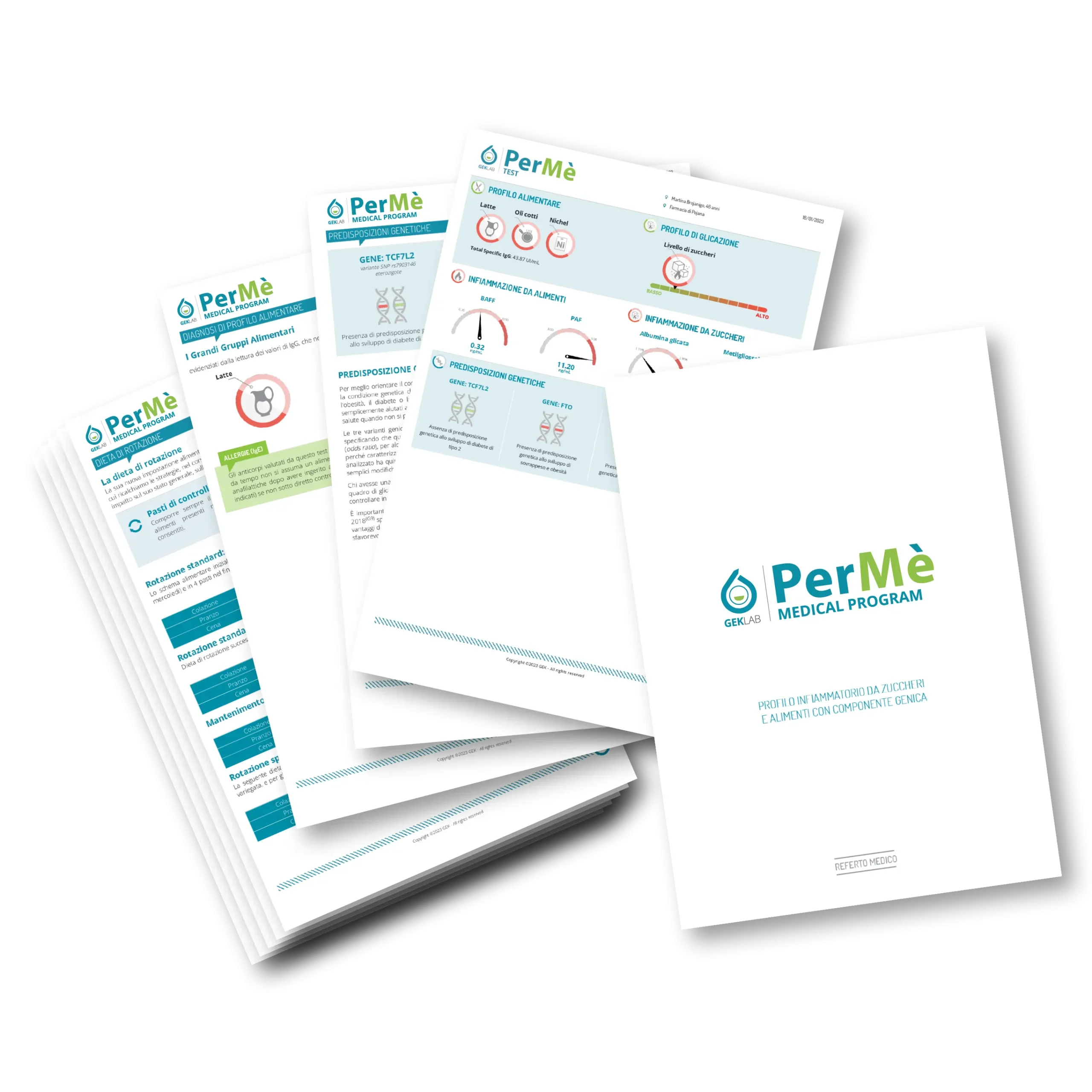
Suffering from headaches, particularly migraines, can have a significant impact on quality of life. These disorders, especially in their chronic form, can be debilitating and complex to manage. However, in recent years, the connection between headaches and nutrition has become increasingly evident.
For a long time, it was believed that the only link between food and headaches was due to the triggering effects of chocolate, wine, cheese, and foods containing glutamate. However, it is now well established that the excessive and repeated consumption of certain foods that are part of one’s dietary habits can cause inflammation in nerve tissues.
Recent studies have examined how systemic inflammation, triggered, for example, by foods rich in simple sugars or gluten, can influence the onset and persistence of headaches.
When migraines and headaches seem to have no clear cause, exploring inflammation caused by foods and sugars can help us understand the origin of the disorder and contribute to its resolution.
When migraines and headaches seem to have no clear causes, exploring inflammation caused by foods and sugars can help us understand the origin of the disorder and contribute to its resolution.
These results highlight the importance of a holistic approach to those forms of migraine or headache for which it is difficult to find a specific cause through commonly prescribed tests.
Relationship between headaches and inflammation
The relationship between headaches and foods that may contribute to inflammation was first suggested in 2001, when a British study published in the journal Neurology investigated a group of celiac individuals who also suffered from headaches. The study found that the headaches were linked to a mild but persistent condition of nerve tissue inflammation and were closely related to the intake of foods containing gluten.
In November 2019, a systematic review published in the Journal of Headache and Pain highlighted how dietary changes can play a key role in managing headaches and migraines. The study suggests that a ketogenic diet, along with its variants, may have a neuroprotective effect and reduce neuroinflammation, an important factor in chronic and recurring headaches.
For these reasons, the authors also suggested a possible role played by diets that can control inflammation and by reducing sugars, elements known as “triggers” of headaches and migraines.
The connection between systemic inflammation and migraines was further highlighted in 2021 by Attilio Speciani. In clinical practice, it has been observed that various conditions, including thyroiditis, irritable bowel syndrome, and migraines, may have a common underlying factor: non-celiac gluten sensitivity. In fact, when colitis or irritable bowel syndrome is managed with a personalized diet, a decrease in the frequency and intensity of migraines is also observed.
A personalized diet to manage headaches and migraines
Recent scientific research shows how proper nutrition could be an effective strategy for managing headaches and migraines. In particular, adopting a personalized diet, which eliminates or reduces foods identified by the individual’s food profile and that, when consumed repeatedly, cause inflammation (such as gluten and/or simple sugars), can have a significant impact on the frequency and intensity of symptoms.
The Recaller Medical Program and PerMè Medical Program are particularly suited for studying these correlations because they measure inflammatory cytokines, which recent scientific research has linked to systemic inflammatory conditions related to foods.
Recognizing and addressing the connection between inflammation, nutrition, and headaches can pave the way for new treatment options that go beyond medication. Additionally, it offers the prospect of greater personalization in care, empowering patients to actively participate in managing their own health.
In conclusion, it is important not to underestimate the crucial role that proper nutrition can play in controlling various forms of headaches. Awareness of this connection can open up new opportunities to treat a condition that affects millions of people worldwide, offering innovative treatment perspectives that place the individual at the center of the healing process.
Curated by the Scientific Editorial Team GEK Lab
Articoli correlati
No post found!


